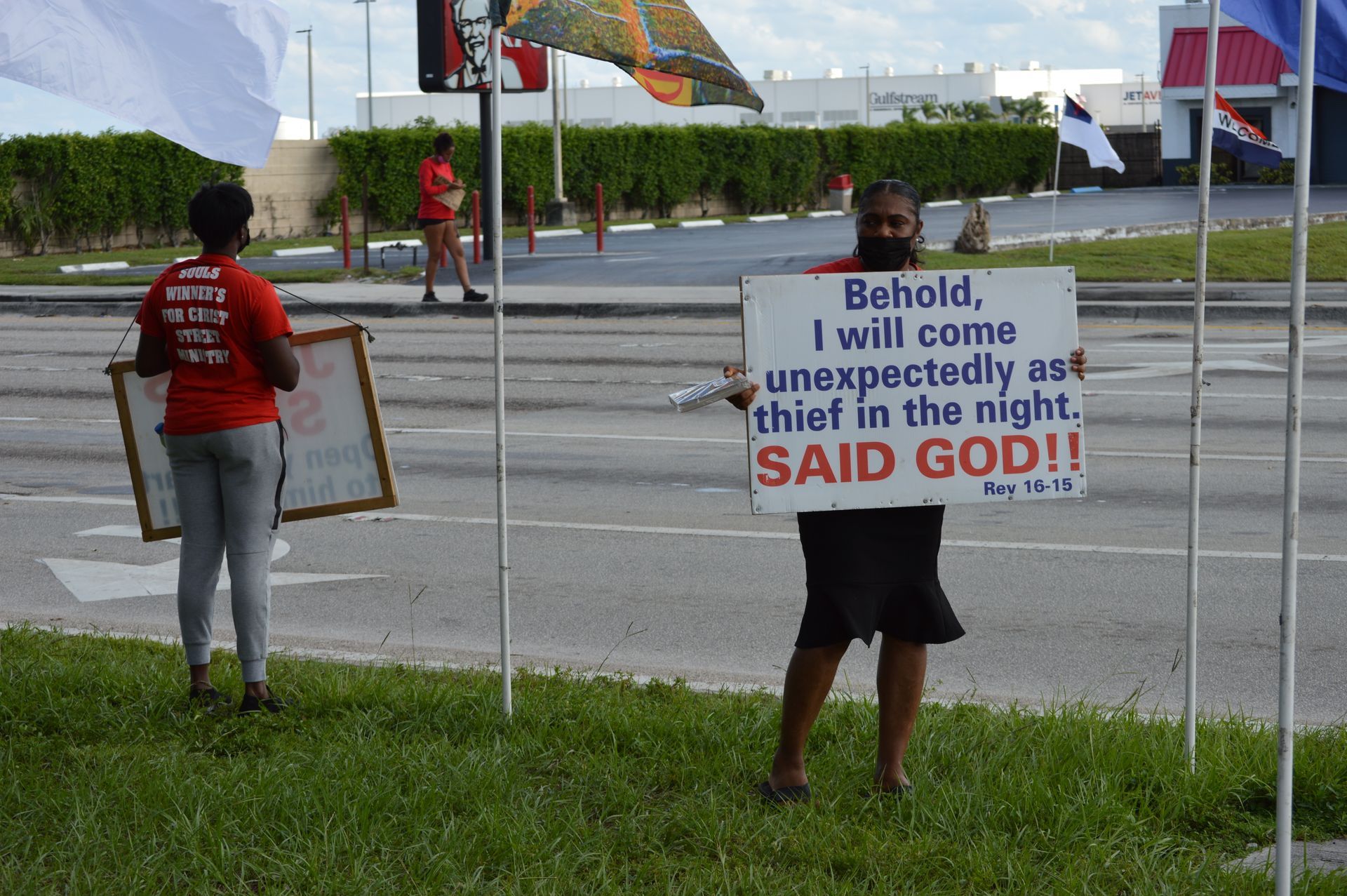Jesus Defines Motherhood
Jesus Defines Motherhood
Luke 8:21
May 8, 2022
Ernest L. Williams, Sr.
Brief Overview of Luke
Matthew presents Jesus as the Jewish Messiah. Luke’s Gospel focuses on Jesus as “the
son of Adam, the son of God” (Luke 3:37). In Luke, Jesus is presented as a friend of sinners and
as a compassionate healer, who is guided by a concern for those who are socially disenfranchised
and of low status, including the poor, the Gentiles, women, and children. 1 Luke sums up Jesus’
mission in Luke 19:10, “For the Son of Man came to seek and to save that which was lost.”
Luke’s account called a “travel narrative” traces Jesus’ ministry from Galilee to Jerusalem.
Along the way, some of the material is unique to Luke.
Historical and Cultural Analysis
Historically in first century Jewish culture, women were considered second class or even
at best, property. Luke’s presentation of Jesus shows the Lord embracing women at a level
unparallel in that day. In Luke 7:35-50 (a story of forgiveness) a woman washes the feet of Jesus
with her hair and precious ointment while Jesus is sitting at dinner at Simon the Pharisees’
house. In Luke 13:10-17, Jesus healed a woman who had an infirmity for eighteen years, she was
bowed down and could not lift herself up. In Luke 7:11-17, Jesus stopped a funeral processional
and raised the son of a widow of Nain from the dead. It is Luke who tell us of Jesus’ cure of
Mary Magdalene from demon possession (Luke 8:2). Likewise, in our current chapter, Luke
placed emphasized the place of the women who helped Jesus in His travels (Luke 8:1-3). Luke
alone has the story of the women who wept for Jesus on his way to the cross (Luke 23:27-31).
Contextual and Theologically Analysis
In chapter 7 (7:1) Jesus enters Capernaum. In Luke 7:11, he enters Nain. There he raised
the widow’s son from the dead. At the end of chapter 7, Jesus is at Simon’s house for dinner. In
the beginning of chapter 8, the Lord is seen moving from town to town and villages. In Luke 8,
verses 2 and 3, Luke mentions the entourage of women who accompany Jesus.
After the Lord tells the parable of the sower, his mother and brethren show up (v.19). We
are told why they wanted to see Jesus. Luke just mentions that they desired to see him (v. 20).
The paralleled text in Mark 3:31-35 says the same as Luke. However, Mark 3:21 states that
Jesus’ friends show up to take him thinking that “He is beside himself.”
Notice Mark 6:2-4, 2 And when the sabbath day was come, he began to teach in the
synagogue: and many hearing him were astonished, saying, From whence hath this man these
things? and what wisdom is this which is given unto him, that even such mighty works are
wrought by his hands? 3 Is not this the carpenter, the son of Mary, the brother of James, and Joses,
and of Juda, and Simon? and are not his sisters here with us? And they were offended at him.
4 But Jesus, said unto them, A prophet is not without honour, but in his own country, and among
his own kin, and in his own house.
Obviously, something was going on in the family of Jesus. Before his resurrection, some
in his family had questions and doubts. We are joyful to know that after the Lord’s resurrection,
his brothers become followers of Christ. We have the books of James and Jude written later by
Jesus’ brothers.
His mother Mary never left his side. According to Luke 8 and John 19:26, his mother
Mary was always close by.
In Luke 8:21, Jesus announces that his mother and his brethren are those who hear the
word of God and do it. After this, the Lord gets on a boat with his disciples and cross over the
sea of Galilee. He claims the raging water and wind. They come to the country of the Gaderenes
and there he heals the man, possessed with demons, living among the tombs, cutting himself.
After this, they get back on the boat, ride back to the other side. When the Lord arrives back,
people are waiting for him (8:40). Jesus is intercepted by Jairus, a ruler of the synagogue. He
asked that Jesus heal his twelve year old daughter. As they move toward the ruler’s house, a
woman with an issue of blood for twelve years, touches the hem of Jesus’ garments. Jesus heals
her.
About this time, a servant of the ruler’s house comes and tells them that his daughter is
dead (8:49). Jesus proceeds to go to the ruler’s house to raise the girl from the dead.
Chapter 8 begins and ends around women. Here, Luke shows Jesus’ compassion for
women. Jesus gives the best definition of a mother in Luke 8:21. He says, “My mother and my
brethren are these which hear the word of God, and do it.”
Two things stand out.
- Mothers and all believers are those who hear the word of God. Jesus just finished telling
the parable of the sower sowing seeds with some falling by the wayside, some falling on
stony ground, some fell among thorns, and some fell on good ground. Jesus says of the
good ground, “are they, which in an honest and good heart, having heard the word, keep
it, and bring forth fruit with patience” (8:15).
- Jesus ties the parable to what defines a godly mother and true believer.
- Mothers and believers not only hear the word of God but they go further, they “do it.”
Application
- Jesus gives two traits of a godly mother. Jesus’ definition of motherhood is not limited to
those with children. The Lord simply says that my mother and my brethren are these that
hear the word of God, and do it. A godly mother is one who not only teaches her children
godliness, but she also herself is their example. To hear the word of God and do it must
mean that this is a person that takes God’s word serious for their own lives first.
- We talk about this and that in the church. We itch for loud music, oratorical skills in
preaching and teaching, and heart moving prayers. If we are not careful, we would send
our time merely seeking to hear some new thing. Not as much heeding to the words to
live by, but some are only satisfied to just hearing something. Acts 17:21, “(For all the
Athenians and strangers which were there spent their time in nothing else, but either to
tell, or to hear some new thing.)
- What mothers among us will take seriously the words of scripture, “thy word have I
hidden in my heart that I might not sin against you”? Who will commit to teaching their
children that is more blessed to give than to receive? Who will be sold out for Jesus and
not sold out for this material world and teach their children the same? “Let your
conversation be without covetousness; and be content with such things as ye have: for he
hath said, I will never leave thee, nor forsake thee” (Heb 13:5). What mothers will with
their husbands be that example of Christian virtues of love, forgiveness, humility, and
devotion to God?
Conclusion
Remember Luke’s theme is salvation. The focus of Luke 8:21 is salvation. In Luke 7:47,
Jesus said of the woman with the box of precious ointment, “ 47 Wherefore I say unto thee, Her
sins, which are many, are forgiven; for she loved much: but to whom little is forgiven, the same
loveth little. 48 And he said unto her, Thy sins are forgiven. 50 And he said to the woman, Thy faith
hath saved thee; go in peace.
Also, in Luke 8, concerning the woman with the issue of blood, “ 48 And he said unto her,
Daughter, be of good comfort: thy faith hath made thee whole; go in peace.”
Faith and peace are directly linked to salvation. Faith that proceeds salvation is followed
by peace.
A child was having a hard time believing in Jesus. He attended Sunday School, but the
message was not getting through. He was also embarrassed of his mother’s burns and cuts on her
body. When the mother noticed one day, how her avoided her at a school function, when they got
home, she told him about how she got the burns and cuts on her body. She told him that when he
was a baby, they were in a bad car accident. To protect him, his mother shielded him. She
suffered major burns and cuts. And that is how she got those burns and cuts on her body. The
little boy was so hurt. He didn’t realize that his mother went through all of that just for him.
The mother also told him that Jesus has scars on his body for all of us. And that we
should not be embarrassed about his cars neither. For God so loved the world, that he gave his
only begotten Son…
Our Sermons


